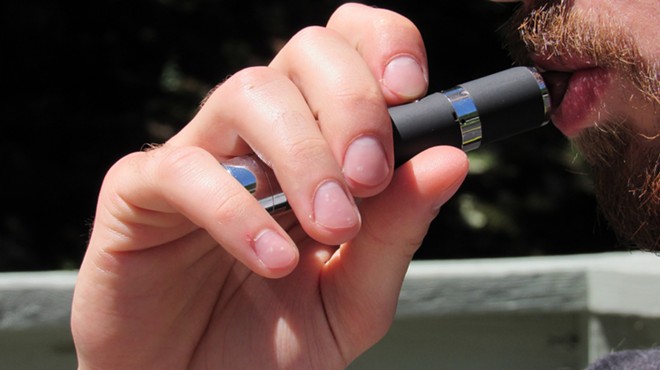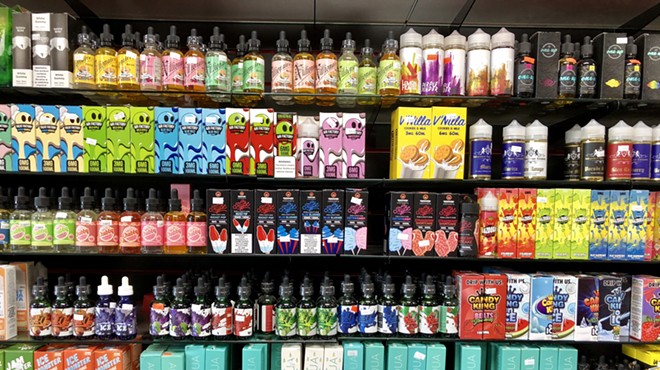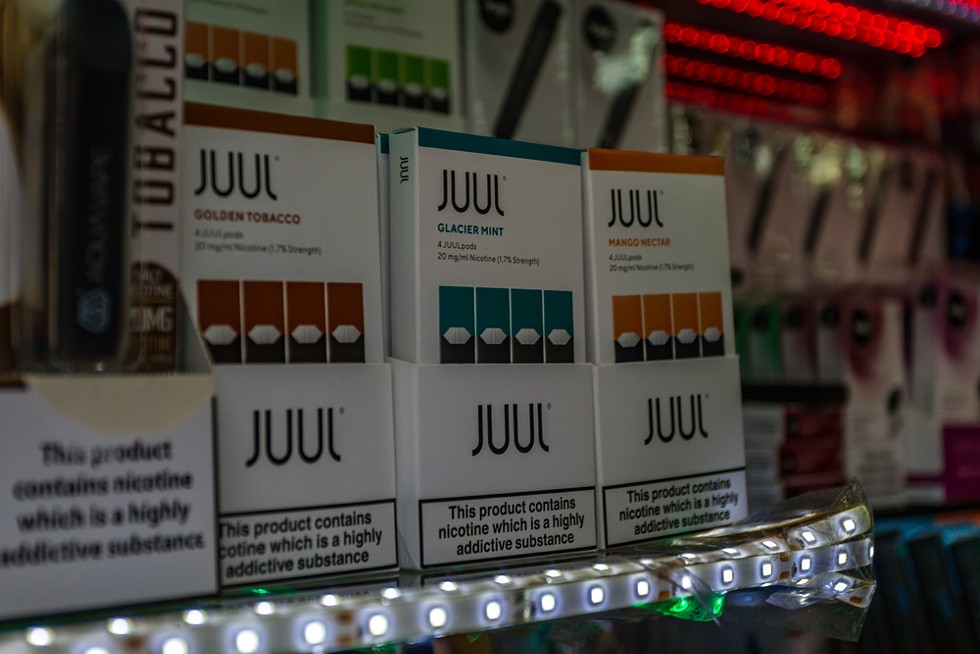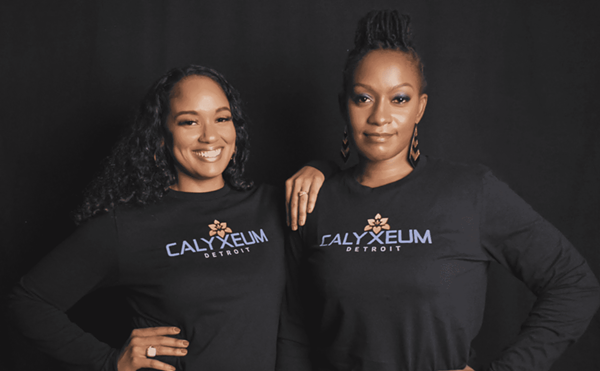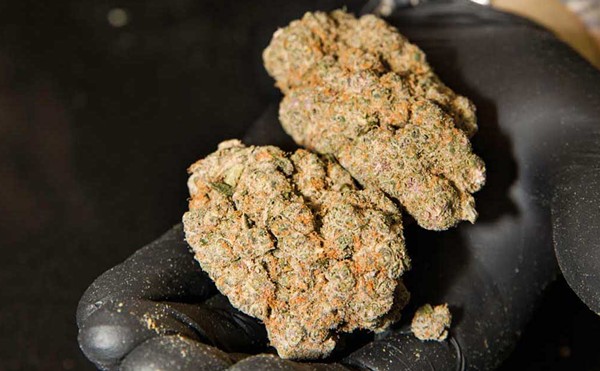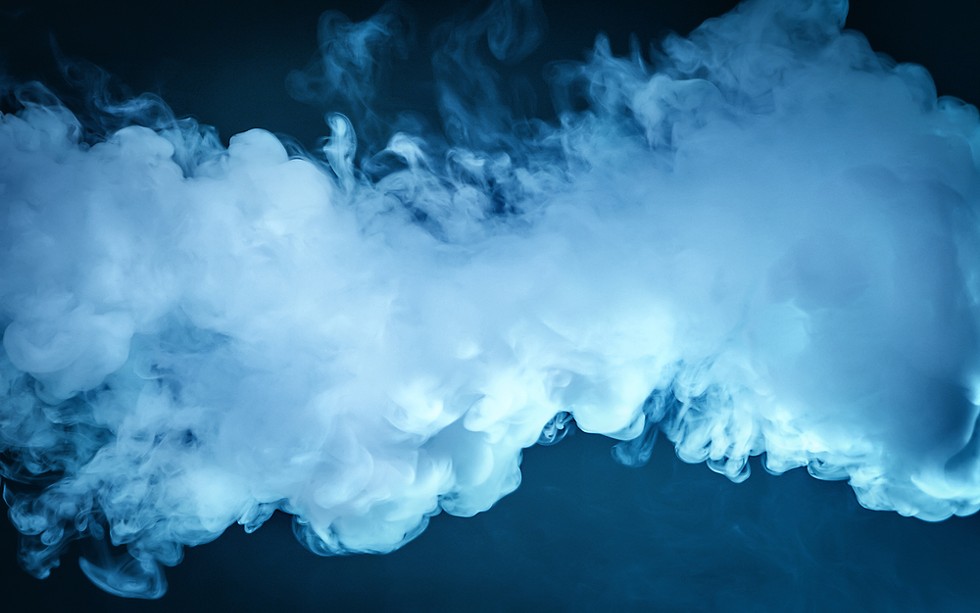
By the end of August, terrifying details of a mysterious respiratory illness began to emerge: Hundreds of otherwise healthy young people were admitted to hospitals across the country with life-threatening conditions. Some were dying.
All reported vaping.
As the public began to panic, Gov. Gretchen Whitmer declared a public health emergency on Sept. 4, and soon Michigan was the first state to ban flavored nicotine vaping products.
"My number one priority is keeping our kids safe and protecting the health of the people of Michigan," Whitmer said at the time.
The story became national news, with Whitmer granting The Washington Post an exclusive interview the day before officially announcing the ban. Soon after, the Trump administration also announced it was also considering banning flavored e-cigarettes.
"We can't allow people to get sick," President Donald Trump said. "And we can't have our kids be so affected."
But the governor's bold move does nothing to address this recent spate of deadly vaping-related illnesses.
While vaping is most commonly associated with nicotine e-cigarettes like the popular Juul brand, the vast majority of the more than 530 cases of vaping illness being investigated nationwide have been linked to tainted, black market cannabis oils that are vaped. So far nine vaping-related deaths have been reported across the country.
And by attacking nicotine e-cigarettes and ignoring the cannabis vaping crisis, Whitmer and Michigan health officials have confused the public and directed attention away from the growing popularity of illicit cannabis cartridges.
Consider a new Morning Consult poll released on Sept. 19, which found that 58% of Americans believe vaping nicotine has caused deaths from lung illnesses, while only 34% think cannabis cartridges are to blame.
"The message to just stop vaping altogether is so vague that people are largely going to ignore it, especially young people," Michael Siegel, a professor of community health services at Boston University, tells Metro Times. "This is going to lead to more cases and more deaths that could have been avoided."
A spokesman for Whitmer did not respond to numerous requests for comment.
As of Tuesday, Sept. 24, the Michigan Department of Health and Human Services had identified 15 cases of severe lung disease associated with vaping, with 10 classified as confirmed and three classified as probable; the department is investigating an additional 15 possible cases. Most of the patients have fallen ill after vaping cannabis oil, says Bob Wheaton, spokesman for the Michigan Department of Health and Human Services, though no deaths have been reported yet in Michigan.
By attacking nicotine e-cigarettes and ignoring the cannabis vaping crisis, Whitmer and Michigan health officials have confused the public.
tweet this
Despite this, HHS has done little to nothing to address the cannabis vape cartridges, while other states are ramping up public awareness campaigns and requiring more rigid testing.
On its website, HHS dedicated an entire section to vaping, but the only mention of marijuana cartridges is on one page of a 71-page slide show, which fails to address the link to cannabis oil.
As health officials scramble to get a handle on the outbreak, investigators are increasingly focusing on vitamin E acetate, an agent used to dilute and thicken THC oil in black-market cannabis vape cartridges. THC is the psychoactive component of marijuana — the stuff that gets you high.
When vitamin E reaches a high temperature, it transforms from an oil to a vapor. But when the substance is inhaled, it reverts back to oil in the lungs, which can cause pneumonia.
Investigators at the Food and Drug Administration found vitamin E acetate in samples collected from patients across the country. The same compound was found in nearly all cannabis samples from New York patients who have fallen ill in recent weeks, according to that state's health department.
In a vast majority of the cases nationwide, the Centers for Disease Control and Prevention said patients reported using illicit vape cartridges. Most of the samples tested by the CDC found vitamin E acetate.
"Although investigations and data collection are ongoing, it appears that most, if not all, of the reported cannabis-related cases so far stem from products sourced from the unregulated criminal black market," the national Cannabis Trade Federation said in a statement. "Consumers and communities will benefit when all cannabis products are subject to rigorous production, safety, and testing standards at the federal level."'
But with cannabis still classified as a schedule 1 drug in the eyes of the Feds, it has evaded the typical regulatory channels — and black markets, where the tainted marijuana vaping cartridges originated, have flourished.
The appeal of vaping
Vaping was introduced to the U.S. mass market in 2007. The "e-liquid," which can come in fruit or candy flavors, is heated up with a battery-powered device, creating thick, white vape clouds when exhaled. The liquid typically contains nicotine, propylene glycol, vegetable glycerine, and other natural flavorings, and costs less than cigarettes.
The new technology was promoted as a safer alternative to smoking cigarettes, which kills more than 450,000 people a year nationwide, because it doesn't burn anything. It doesn't contain tar or tobacco, and has far fewer toxins and chemicals. It also doesn't stink up a room, or the smoker's breath and clothes. Vapers often report feeling better than when they smoked cigarettes, saying they breathe easier and have an improved sense of taste and smell. More than 420,000 Michigan residents regularly used e-cigarettes in 2016, according to an FDA-funded study.
But the allure of e-cigarette flavors like cotton candy, bubble gum, and kids cereals has also attracted young people who had never smoked before, the Whitmer administration argues. Recent studies show as many as one-quarter of 12th-graders vape. According to the CDC, teenagers are now more likely to vape than smoke cigarettes.
While health experts generally agree that vaping is less harmful than smoking, e-liquid still contains potentially harmful substances like heavy metals and chemicals. And since vaping is relatively new, the long-term health hazards aren't yet known.
A few years after e-cigarettes were introduced to the market, cannabis vaping products followed.
Inexpensive, discreet, and widely available at marijuana provisioning centers and on the black market, cannabis cartridges are the fastest-growing segment of the marijuana industry. In the legal cannabis market, vape cartridges represented 27% of sales nationwide, up from 10% in 2014, according to BDS Analytics, which tracks the marijuana industry.
For years, the cartridges have contained cannabis oil and other natural ingredients. The golden, gooey substance inside the cartridges is vaporized using a battery-powered heating device similar to nicotine e-cigarettes.
But there has been a recent emergence of companies, including one in Michigan, selling vitamin E acetate to the black market. The thickening agent is relatively inexpensive and can dilute cannabis oil without thinning the consistency. By cutting cannabis oil with the toxic thickening agent, black-market dealers can sell the cartridges at a much lower price than dispensaries can afford to sell their tested, regulated products.
With empty cartridges and counterfeit boxes widely available online, illicit sellers have gotten more sophisticated in marketing and packaging their products, making them appear legitimate. In Michigan, hundreds of unlicensed black-market delivery services are peddling bootleg cartridges.
In early September, New York investigators subpoenaed three of the biggest thickener manufacturers, including Ypsilanti-based Floraplex Terpenes, which sold a diluent containing vitamin E called Uber Thick. The diluents are primarily used for vape cartridges.
The New York State Department of Health tested samples from Floraplex and the two other companies, Massachusetts-based Mass Terpenes and California-based Honey Cut, and found "they are nearly pure vitamin E acetate oil."
The companies have since removed the products from their websites. On Floraplex's website, it had described its product as a "high-viscosity terpene diluent" that cost $3,499 per gallon. It only takes about 1 liter of vitamin E acetate to fill 1,000 one-millimeter cartridges.
Floraplex did not respond to Metro Times for comment.
"These thickeners are being marketed and readily available on the internet as a cheaper, safer alternative that does not negatively impact flavoring or odor of existing products and can be used to cut vape products to any level of THC," the New York State Department of Health wrote in a statement.
Public health officials have begun to identify lines of illicit vape cartridges sold in authentic-looking packaging. In New York, authorities first reported that people were getting severely ill from bootleg cartridges branded as "Dank Vapes" and "Chronic Carts."
In Wisconsin and Illinois, 24 of 41 cases examined by the New England Journal of Medicine were linked to "Dank Vapes." Earlier this month, law enforcement authorities busted a major counterfeit operation in Bristol, Wis., where authorities seized more than 31,000 cannabis-filled vape cartridges in "Dank Vapes" packaging. Authorities also found 57 mason jars full of cannabis oil and nearly 100,000 empty cartridges, although they have not yet said whether the cartridges contained vitamin E acetate or other harmful additives. Two men in their early 20s were arrested. One of them told detectives he bought the cannabis oil in California and paid employees $20 an hour to fill the cartridges.
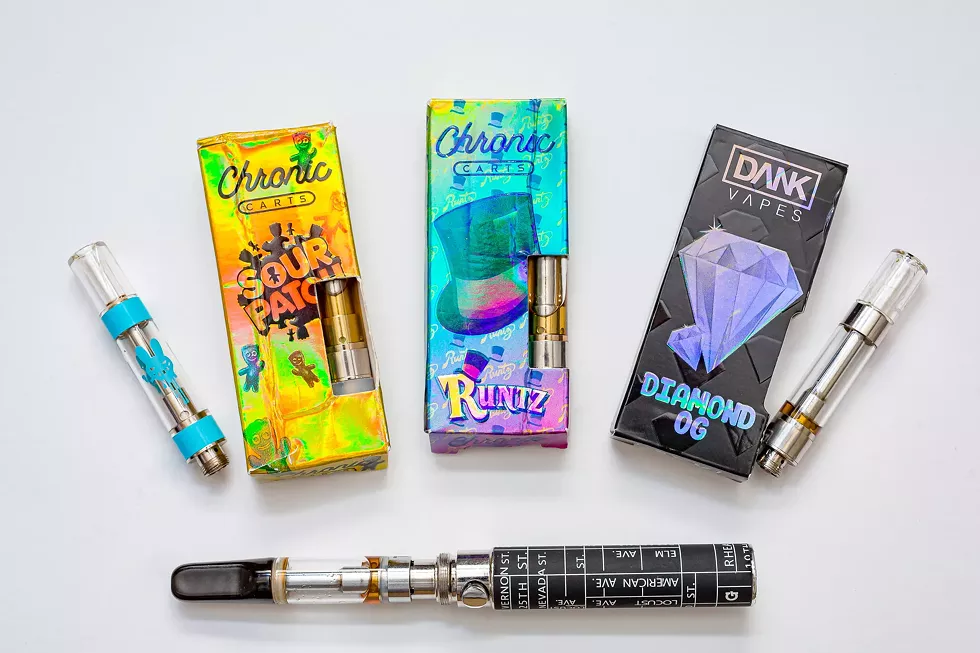
Wheaton confirms at least some of Michigan's cases involve Dank Vapes.
"It is clear from the data that the principal source of these illnesses has been vaping THC, the active ingredient in marijuana, that has been mixed with vitamin E oils," Kenneth Warner, professor emeritus and dean emeritus at the University of Michigan School of Public Health, tells Metro Times. "Basically, this is the result of vaping adulterated THC during kids' attempts to get high. There is no evidence that vaping nicotine has been responsible for any of these illnesses."
Is vaping legal marijuana safe?
Health officials have linked only one case of lung illness to cannabis cartridges purchased in legal marijuana dispensaries and provisioning centers. A middle-aged man in Oregon died on Sept. 4 after vaping cartridges from two state-licensed centers. But health officials said it's impossible to confirm those cartridges were the cause of his illness.
Michigan's state-licensed medical marijuana provisioning centers say their cartridges are safe because they undergo rigid testing and are made by state-certified manufacturers that use natural ingredients.
"The brands behind the cartridges we have are transparent about them," Rush Hassan, head of operations and business development at The Reef in Detroit, tells Metro Times. "We do our due diligence and often ask how the cartridges are made."
In Michigan, all marijuana products sold at licensed provisioning centers must be tested for pesticides, toxic metals, bacteria, and residual solvents from extraction methods. But like other states with a regulated marijuana industry, the state's Marijuana Regulatory Agency does not require testing for vitamin E acetate, nor does it require vape cartridge manufacturers to divulge the ingredients.
Michigan Pure Med, which operates Flint's Common Citizen provisioning center, is calling on the state to ban the use of non-natural additives and cutting agents in vape cartridges.
"Manufacturers are cutting corners by using non-natural ingredients as additives in vape cartridges," Michigan Pure Med's CEO Michael Elias says in a statement. "We urge swift action by elected leaders to ban this potentially hazardous practice."
Elias said the provisioning center's employees are also distributing information to customers "with facts about vaping and how customers can protect themselves from dangerous products that may pose a risk to human health."
"Safety is our number one priority, and it's high-time for elected leaders to crack down on black-market operators who are selling untested, dangerous products and passing it off as medicine," Elias says. "We need stronger enforcement for bad actors who are causing people to get sick from tainted vape cartridges, and we call upon state leaders and licensed manufacturers to adopt Good Manufacturing Practices to make Michigan a leader in consumer safety."
It's not just vitamin E acetate that's a health risk in cannabis cartridges. In April, the Michigan Regulatory Agency began warning dispensaries and consumers that lead from some cartridges was leaching into the cannabis oil.
"Patients who medicate by vaping should be aware of this potential contamination which may occur after [initially] passing tests," the agency warned in a bulletin.
Previously in Michigan, cannabis oil was tested before it was placed in metal cartridges. Now the state is requiring testing while it's inside the cartridges.
In February, state regulators recalled cartridges from Utopia Gardens in Detroit for chemical residue.
On Aug. 30, state regulators found chromium in cartridges made by Platinum Vapes. The product had failed testing on June 6 and was being sold at eight provisioning centers. The discovery was made as part of an ongoing investigation into inaccurate or unreliable testing results from Iron Laboratories, one of a handful of safety-compliance facilities in Michigan. The state suspended the lab's license on Aug. 16.
"It is imperative that our licensees follow the rules and laws, especially regarding the testing of medical marijuana products," MRA Executive Director Andrew Brisbo said in a news release. "We are intensely focused on making sure that the marijuana product in the regulated industry meets established safety standards."
What can be done
In the midst of the lung illness outbreak, some states are beginning to take steps to protect consumers from the potential health hazards of cannabis vaping. So far, Michigan is not one of them.
Since marijuana is still considered a schedule 1 drug on the federal level, there are no unified standards governing the cannabis industry in the U.S.
In Oregon and New York, dispensaries are now required to post warnings about the potential hazards of vape cartridges. In Massachusetts, cartridge manufacturers will soon have to list the ingredients used in their products.
The Oregon Liquor Control Commission also encouraged dispensaries to stop selling any potentially problematic cartridges from their shelves and offer returns on previously sold vaping products.
New York Gov. Andrew Cuomo and the state's health commissioners are urging consumers to stop vaping until health officials have identified the cause of the lung illness for certain.
Some testing labs in Pennsylvania, Oregon, California, and North Dakota have begun voluntarily testing for vitamin E acetate.
Michigan has three marijuana testing labs in operation — Spott Laboratory, PSI Labs, and Steadfast Analytical Laboratory — which handle products for dozens of marijuana provisioning centers. Their work is cut out for them, with recreational adult-use cannabis set to hit the market early next year, which Michiganders approved on the ballot last November.
The labs are required to test for pesticides, toxic metals, bacteria, and residual solvents from extraction methods. Cannabis products that have been tested include a label with the name and license number of the manufacturer, the name of the marijuana strain, potency, a unique identification number for the package, and the date of harvest.
Linda Palmatier, who works at Kalamazoo's Spott Laboratory, says that her lab samples flower, concentrates, edibles, and other marijuana-infused products, but it does not test for vitamin E acetate.
"We have not researched yet to see what it would take to test" for vitamin E acetate, she tells Metro Times. "With only three running operational labs in the state, we're all pretty busy."
Public officials said the safest place to buy cartridges are at state-certified provisioning centers.
"Once licensed entities get the proper cartridge, get the proper procedures ... they're considered very safe," Palmatier says. "With the black market, who knows where they're getting them? They're probably not getting tested. I wouldn't recommend anybody to use black-market cartridges."
Youth vaping on the rise
In Michigan, the governor and public health officials say they're focused on flavored nicotine because they're alarmed by the dramatic increase in teen vaping.
"[R]ight now, companies selling vaping products are using candy flavors to hook children on nicotine and misleading claims to promote the belief that these products are safe," Whitmer said when announcing the ban.
Andria Eisman, a research assistant professor for health education at the University of Michigan's School of Public Health, agrees that the rise of youth vaping constitutes a health crisis. The rates of e-cigarette use has doubled among middle- and high-school students in the past two years, according to the most recent results of the university's Monitoring the Future survey, which has tracked drug and alcohol use in adolescents since 1975. More than 25% of 12th graders reported vaping nicotine in the past month, while the numbers were 20% for 10th graders and 9% for eighth graders.
"It's [one of the only] substances where rates actually have increased among young people, as opposed to decrease," Eisman says. "It's definitely of concern, I think, for all who are interested with adolescent health."
Eisman says young people are attracted to the novelty of vaping, helping create what one analyst estimated was a $6.6 billion U.S. e-cigarette market in 2018.
"The electronic piece of it, the technology piece that's related to it, the flavor piece that's related to it, the advertising that's been [associated] with it, you know, certainly does draw young people in," she says.
There's also the perception that vaping is a healthier alternative to smoking.
"I think in many ways we're still working to understand the health risks associated with vaping, but it's not a harmless vapor," she says. "In fact, it's inhaling an aerosol. Even among flavors, these potentially can do damage to the lungs because there are chemicals or toxins within the flavors. I think that's one of the misperceptions, is that it's safe."
Aside from concerns with lung health, Eisman says she's concerned about youth vaping because nicotine is addictive and teens' brains are still developing.
But by banning flavored nicotine e-cigarettes, more young people are going to take up old-fashioned smoking, and smokers-turned-vapers will return to cigarettes, says Dr. K. Michael Cummings, a tobacco expert and professor of psychiatry and behavioral sciences for the College of Medicine at the Medical University of South Carolina.
"What Michigan did was stupid," Cummings tells Metro Times. "Cigarettes are enormously deadly. I think tobacco companies are laughing all the way to the bank because vape shops were a threat."
It's a new era for marijuana in Michigan. Sign up for our weekly weed newsletter, delivered every Tuesday at 4:20 p.m.

